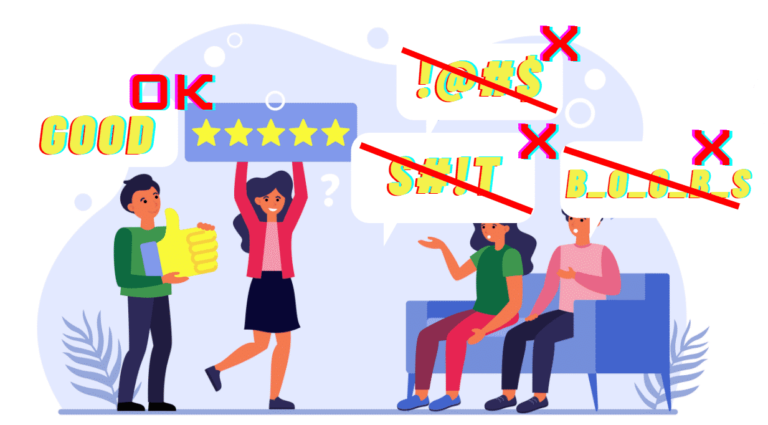Despite the latest advances in AI, recent events have demonstrated just how essential human involvement in the moderation of User Generated Content remains and will continue to do so as the online content landscape evolves.
The COVID-19 pandemic has taught us some very clear lessons about where we need to be with our approach to online content moderation but, at the same time, it has also raised more than a few questions about where we should be headed in the future. In this post we will examine AI’s frequent failures to understand context, what upcoming government regulations will mean for content providers, and as podcasts containing hate-filled rhetoric, unhinged conspiracies, and dangerous and misleading disinformation frequent platforms, the logistical complexities and moral quandaries of ‘audio content moderation’.
1. Content Moderators understand context and intent better than AI.
According to the investor relations report of Facebook on Jan 2021, due to safety and social distancing concerns, Facebook sent its approximately 20,000-strong team of moderators home, announcing that the job of sifting through content generated by its 2.85 billion monthly active users would be left up to the platform’s automated systems. By any metric you wish to measure, the results were less than impressive.
There’s no doubt Facebook and Instagram have a content moderation problem they are trying to automate their way out of human moderation.
During the second quarter of 2020, Facebook showed a removal rate of child sexual abuse images on Instagram of less than 50% than it had in the previous quarter. The removal of content related to suicide and self-harm also fell considerably, falling from 1.3 million pieces of content removed in Q1 of 2020 to just 275,000 pieces in Q2 that same year. This was not due to fewer harmful images and videos being uploaded, but because the moderation system in place was simply ill-equipped to identify and remove them.
While automated content moderation systems on Facebook were already responsible for removing over 95% of those types of posts, sparing human moderators much of the trauma, human reviewers are critical for a process known as ‘banking’. ‘Banking’ is where known images related to abuse or self-harm are logged so that Facebook’s AI systems can more easily find them and take them down. Without humans banking, this content on the AI’s behalf, the ability to moderate at scale diminished significantly.
The flipside of this saw Facebook’s reliance on automated systems actually lead to a spike in removals of what it deemed to be hate speech, from just 9.6 million incidents of hate speech removed from Facebook in Q1 2020 to 22.5 million pieces removed in Q2. However, this was not because there was an increase in bigoted rhetoric online. In fact, many users complained that their posts trying to HIGHLIGHT discrimination or civil rights abuses had been taken down. The problem arose as language that might be considered offensive is often heavily dependent on the context in which it’s used. Terms that are slurs when used in some settings may not be in others. In one study, researchers found that tweets written in ‘African-American English’ commonly spoken by Black Americans are up to twice as likely to be flagged as offensive compared to others. Algorithmic systems lack the ability to capture the nuance and contextual particularities that may be better understood by human moderators.
Thankfully, things began to return to normal as moderators came back to the office in late 2020 and early 2021. “People are an important part of the equation for content enforcement,” said Guy Rosen, Facebook’s vice president of integrity. This point was followed up on by Facebook’s chief technology officer Mike Schroepfer. Despite the clear advances in the technology, he acknowledged that AI moderation will never replace the work of human moderators.
“I don’t see any short-term reduction or long-term reduction in the human involvement in this“ Guy Rosen said.

2. Protecting freedom of speech while ensuring a safe and accountable online environment.
Criticism aimed at social media companies regarding how they moderate user content is nothing new but the pressure in recent years has now grown to the point where governments around the world have already implemented, or will soon implement, legislation such as the EU’s Digital Services Act and the UK’s Online Safety Bill, that many see as problematic.
While the motives of such legislation may be welcome, as the damage caused by COVID disinformation, the continuing presence of online far-right extremist groups, and the regressive racial abuse of black soccer players across social platforms can attest, critics suggest combating ‘harmful content’ risks damaging freedom of expression and can easily lead to censorship.
According to Peggy Hicks, Director of Thematic Engagement for UN Human Rights, it’s a worrying trend that has already seen laws related to online content jeopardize human rights in many countries. “This happens because governments respond to public pressure by rushing in with simple solutions for complex problems,” she said.
The main concern with such laws stems from their ambiguous definitions of what exactly constitutes unlawful or harmful content and the increased liability that will be imposed on companies for user-generated content.
To address the issue, UN Human Rights has proposed several actions for governments and businesses to consider. For example, content restrictions imposed by governments should be based on clear laws and these laws should be proportionate and non-discriminatory. Following on from that, digital platforms need to ensure transparency about how they curate, moderate and share content and user data, and governments need to be transparent about their requests to restrict content and view that data.
Primarily, however, the UN urges that any new regulations should be focused on improving the actual content moderation process, rather than adding content-specific restrictions. Achieving this goal is centered on the conclusion that, ultimately, people should be making the decisions on whether or not content is permissible, as protecting the fundamental human right to freedom of expression is too important to be left to the algorithms.
3. The Challenge of Audio Content Moderation.
The podcast industry had a big year in 2020. The popularity of wireless headphones and smart devices, combined with social distancing restrictions, has created a boom for audio. Just over 300,000 new podcasts were created in 2019 while 2020 saw that number increase to almost 900,000. That’s almost 2 new podcasts every minute!
The Podcasting/Audio Revolution.
And it’s not just podcasts, audiobook downloads also saw growth of 21% between 2019 and 2020. Music streaming revenues grew 12% in the first half of 2020 as well with paid subscriptions for the likes of Spotify or Apple Music increasing by 24% year-over-year.
Then we have the new kid on the block, Clubhouse. Clubhouse exploded onto the social media scene in March 2020. It’s an audio-only chatting app where all conversations happen in real-time and allows people to gather in audio chat rooms to discuss various topics, such as sport, art, politics, or even cryptocurrencies. So far, the app has hosted conversations with some very big names such as Elon Musk, Mark Zuckerberg, and Oprah Winfrey.
Clubhouse’s most recent round of Series C fundraising in April put a valuation on the business of about $4 billion. The deal essentially quadrupled its value of $1 billion in January and reflects the astronomical expectations investors have for the app. With those kinds of numbers, it’s no wonder Facebook, Twitter, Discord, and Apple have already unveiled, or are rumored to soon unveil, a whole host of new audio products in the very near future. Meanwhile, Spotify continues to make large investments in the area.
The Challenges of Moderating Live Audio
One content moderation issue that will be common for everybody looking to jump on this particular bandwagon however will be moderation. Clubhouse is no different and has been recently accused of falling short of its content moderation responsibilities. As we’ve stated previously, moderation is far from a simple task, and even platforms like Facebook and Twitter get things wrong from time to time. Audio content moderation, which includes podcasts and voice-chat moderation, presents an even tougher challenge. A recent report shows that over 17,000 new podcasts are launched every week, and to moderate them all would require either a lot of listening manpower or transcribing each one and allowing AI to scan the text to discern if they contain harmful content. However, as discussed above, AI has problems understanding nuance and context.
What makes it more challenging is the disparate network of companies, apps, and hosting services that make up the online audio sector. Moderation will need to happen consistently across these platforms to be effective, and at the moment, it simply doesn’t work the way it does at Facebook, Twitter, or YouTube, where offending content can be removed with the touch of a button. Even high-profile cases, such as Steve Bannon espousing election denialism and calls for violence in the build-up to the Capitol Riots in January 2021, or Alex Jones and his completely baseless conspiracies about 9/11 and Sandyhook, might seem like a cut and dry affair, yet we witnessed a slow and inconsistent response from the major content platforms. As even QAnon now finds its voice in the podcast space after being kicked off the major platforms, an overarching and consistent strategy may be exactly what’s needed.
These incidents show just how unprepared the industry is to moderate podcasts, voice chat, and other audio formats. There is a huge logistical challenge in even finding infringing content as the ephemeral nature of audio conversations makes it very difficult to fact-check conversations or stop bullying and harassment in real-time. There’s also little to no transparency or consistency from the big players in how they monitor the content hosted or listed on their platforms.
On top of all of this, many people have genuine, philosophical concerns about the extent to which podcasting’s famously open ecosystem should be policed. Considering the industry has drawn complaints from both the right and left as either too restrictive or dangerously permissive, there doesn’t seem to be an easy solution on the horizon just yet.
AI will, most likely, never be able to do this job by itself but where it can make an impact is in helping human moderators do their job. Machine learning tools can help make the job of audio moderation easier, but there will always need to be a human in the loop. Who better to understand the intentions, context, and motivation of a human being’s creativity than another human being?
4. Contact Leap Steam for The Right Content Moderation Partner.
With Leap Steam as your content moderation outsourcing partner, you can navigate each type of outsourcing in an iterative approach that adapts to your needs. This way, you can perfectly balance cost, quality, and efficiency for easy and optimal business growth.
Contact us at collab@leapsteam.com anytime and let’s get started!








